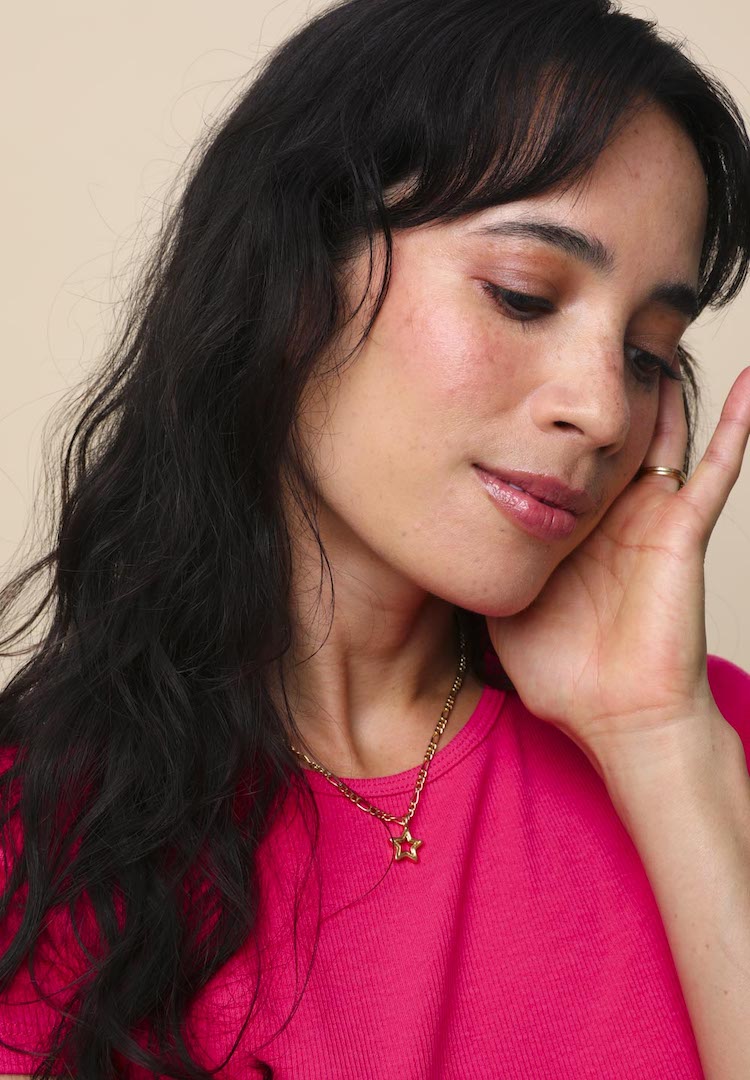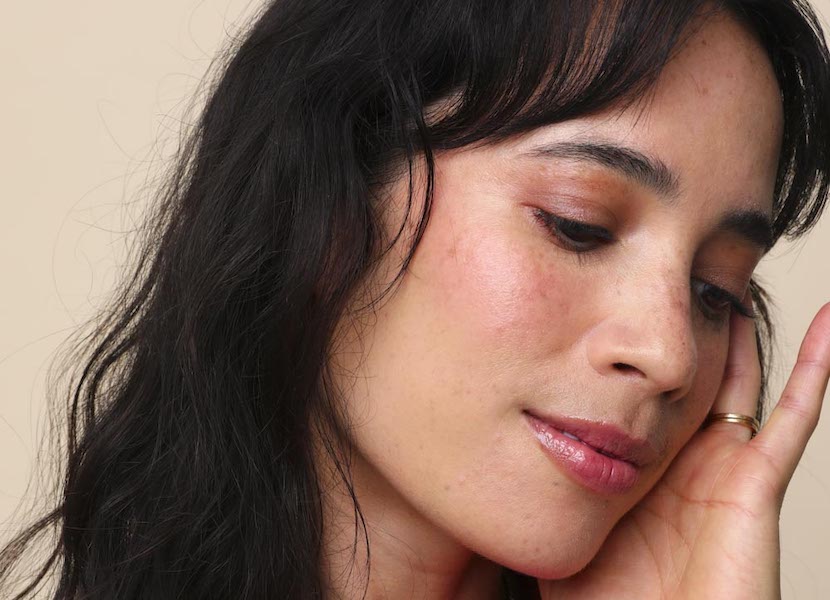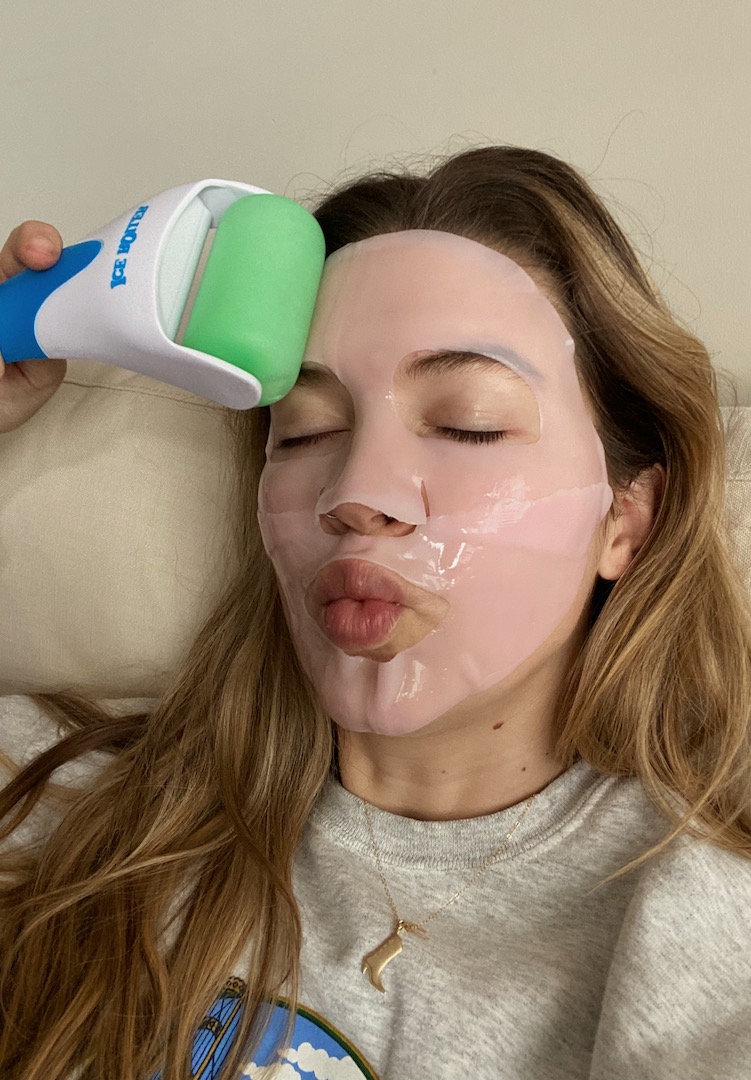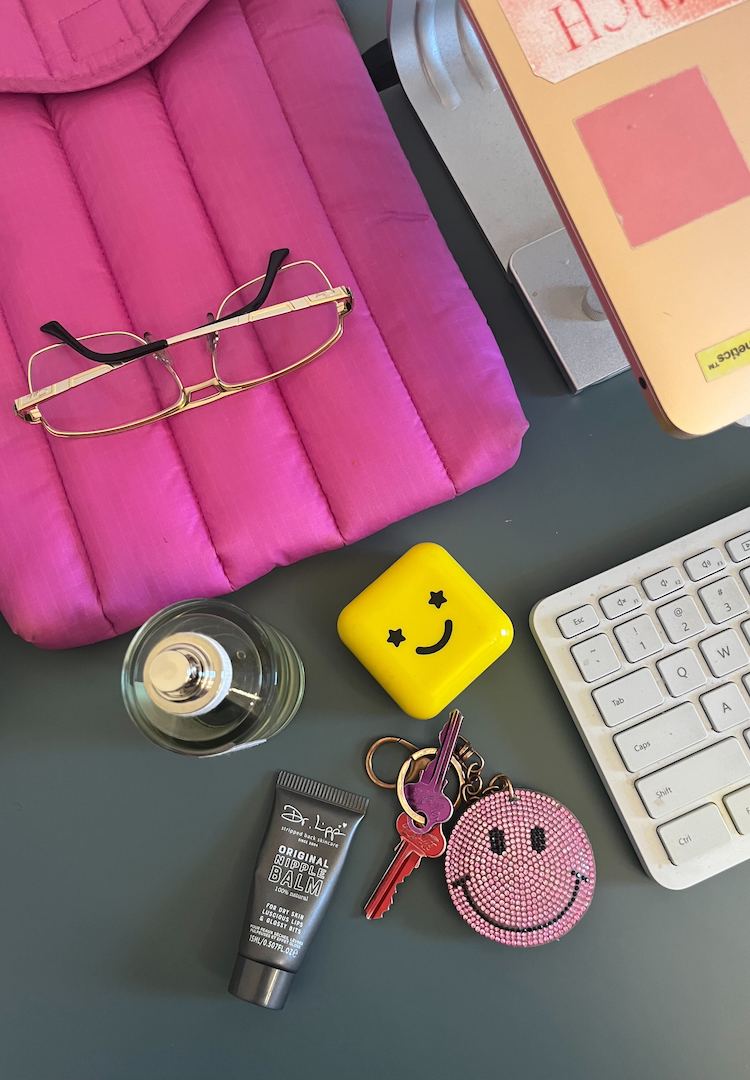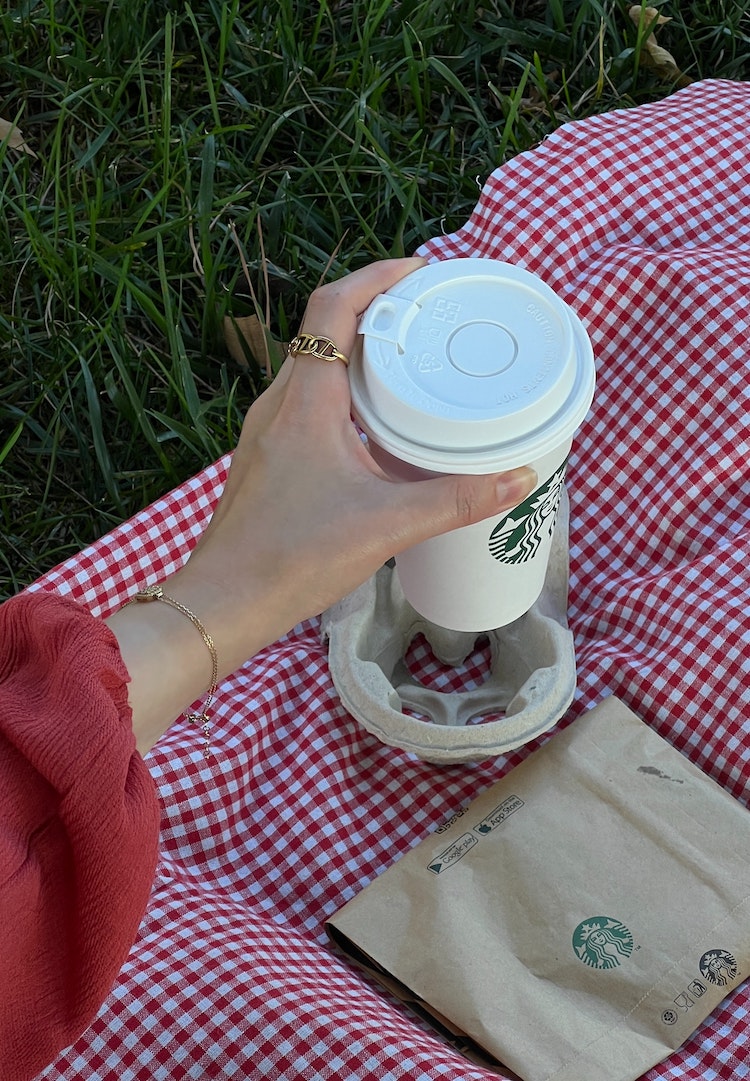My skin flares up when I’m stressed, how do I manage it?
IN PARTNERSHIP WITH SWISSE WELLNESS PTY LTD.
PHOTOGRAPHY BY MEGAN ANN COLLANTE
STYLING BY JAM BAYLON
MAKEUP BY GRETA KEDDIE
WORDS BY MAGGIE ZHOU
“Neurological and hormonal changes can all contribute to the overall health of the skin.”
For many of us, stress feels like a constant state of being in of our busy, busy lives. I find myself lamenting my stress levels on the daily. I’m stressed about my workload, the state of my house, my overgrown roots, my chipped nails, my taxes, my high screen time and the TV shows I need to catch up on. I really could go on but I won’t because it’s stressful just thinking about it all.
To make matters worse, the stress avalanche doesn’t only take up mental space but extends to our bodies. Stress can have a corrosive impact on our health – and by extension, our skin. I’ve had acne, on and off, for over a decade now. It’s imparted insecurity and has caused me a lot of grief. Stress-exacerbated skin concerns are an unironic nightmare, a cycle of stress-induced frustration.
Luckily, our skincare knowledge is expanding. We know that acne isn’t the consequence of simply eating chocolate or not washing our face well. Skin is informed by holistic living, meaning that factors like sleep, hormones and supplements (like Swisse Beauty Multivitamin Beauty Complex) all affect it.
Why is our skin so influenced by stress?
“Stress is a really complex construct,” Software dermatologist Dr Ryan De Cruz says. He explains that when we’re stressed, we have an influx of neurotransmitters that cause us to have an emotional and psychological reaction. But regarding our skin, Dr Ryan points to the hormonal shifts that happen, in particular, the rise in cortisol. As one of our major stress hormones, cortisol affects the skin by targeting oil glands which can lead to acne breakouts.
This is echoed by traditional Chinese medicine (TCM) practitioner Michelle Smith. “Stress in an acute sense isn’t necessarily a problem, in fact, it’s a useful physiological process in the body. The problem arises when we experience long-term stress,” she says.
Michelle adds that chronic stress can impact multiple systems in the body from the nervous system, immune system and cardiovascular system. “From a Chinese medicine perspective, this is total exhaustion of qi and blood, or as I like to call them, your body’s resources.”
What happens to our skin when we’re stressed?
While people typically associate stress-related skin issues with acne, there are many other conditions that can be brought on or amplified because of stress. “You can also have problems with hair loss and have problems with clearing a number of [your] skin[‘s] preexisting conditions,” Dr Ryan says, referring to how psoriasis, eczema and dermatitis can worsen in times of stress. “Neurological [and] hormonal changes can all contribute to the overall health of the skin, he explains.
In TCM, the gallbladder meridian is associated with decision-making and courage. Michelle says that in her practice, there’s a pattern that arises where skin rashes present themselves along the gallbladder when a person is in a state of stress. “We believe the body is always communicating to us,” she says.
What can we do to manage our stress?
To manage stress-induced skin concerns, it makes sense to address the root cause: the stress itself. Dr Ryan emphasises that stress management will (and should) look different for every individual. He does highlight that there’s plenty of research-backed evidence showing the benefit of physical movement as it increases our production of serotonin and dopamine. These “feel-good hormones actually counterbalance some of our stress hormones,” he says.
On a physiological scale, trying to reduce heart rate, respiratory rate and blood pressure can help combat the effects of stress. Michelle agrees, pointing to the benefits of mindful practices like meditation, NSDR (non-sleep deep rest or yoga nidra), acupuncture and massage.
What can we do to manage our skin concerns?
As we’ve established, skin health starts from within. “From a dietary perspective in Chinese medicine, we encourage lots of collagen-rich foods to… tackle skin conditions, especially in the realm of fine lines, brittle nails and dry hair,” Michelle says.
“Adaptogenic herbs like ashwagandha may also be a great support in times of acute stress.” The Swisse Beauty Multivitamin Beauty Complex contains 13 vitamins, minerals and herbals including ashwagandha, as well as marine collagen, hyaluronic acid, vitamin C and biotin.
Above all, keeping a healthy frame of mind when it comes to stress and skin is paramount. “The skin is an outward reflection of the internal state of being,” says Michelle. There’s no point in piling on critical self-judgement about your appearance when you’re grappling with a myriad of different stress factors. Stress is stressful enough, without the added bumps.
For more information about the Swisse Beauty Multivitamin Beauty Complex, head here.


